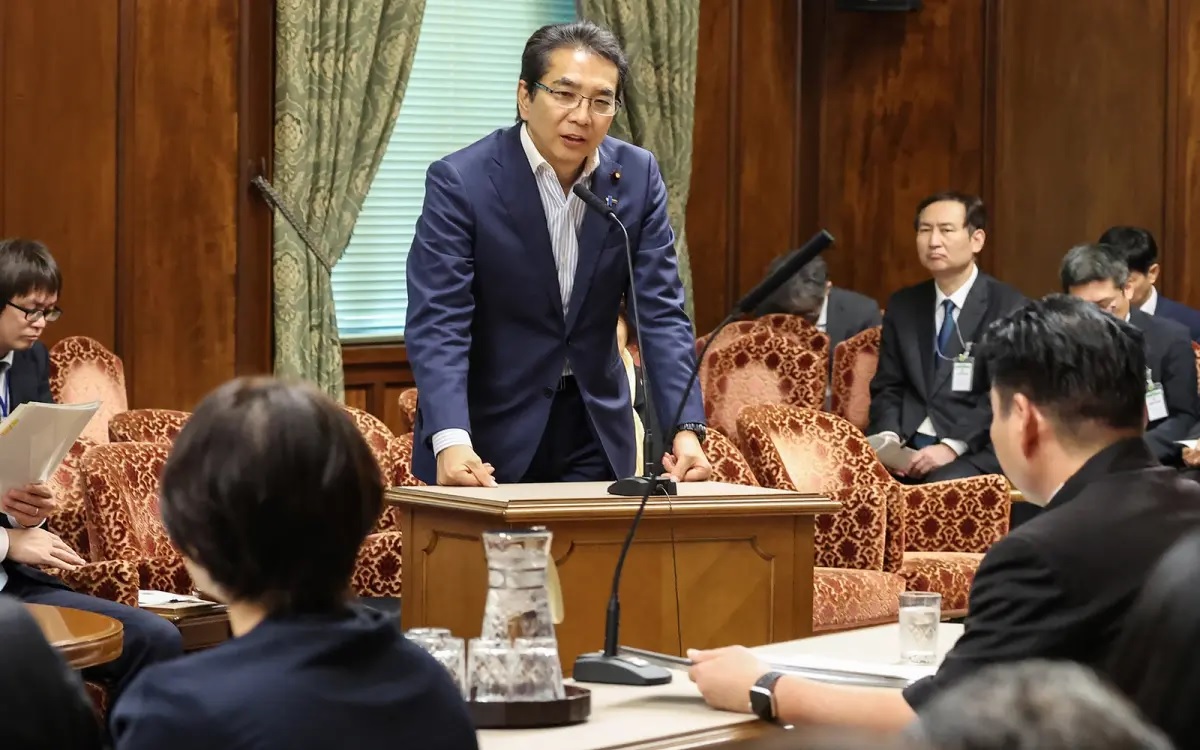Japan’s agriculture minister, Taku Etō, on Wednesday, May 21, 2025, resigned following public outrage over his controversial statement that he never purchases rice because he receives it for free.
The comment, made during a time when Japan is grappling with soaring food prices, especially rice, has intensified pressure on Prime Minister Shigeru Ishiba.
Ishiba’s administration is already under fire for failing to tackle the cost of living crisis.
With upper house elections looming in July, Etō’s resignation adds to the growing discontent among voters.
Etō officially announced his resignation at the prime minister’s office, stating, “Just now I submitted my resignation to Prime Minister Ishiba.”
The move followed widespread backlash after Etō admitted that he doesn’t buy rice.
He claimed he receives so much from political supporters that he could practically sell it.
The remark was made at a political fundraiser, where he attempted to highlight his connection to constituents.
However, he appeared disconnected from the daily financial struggles of ordinary Japanese citizens.
Initially, Etō had expressed concern for consumers during the release of around 300,000 tons of rice from emergency stockpiles earlier in the year.
This action aimed to curb escalating rice prices, but the impact was limited.
When speaking publicly later, however, he undercut that empathy by joking about his personal rice surplus, sparking intense criticism.
His comments particularly angered consumers already burdened by a dramatic rise in rice prices.
According to data released in April, the cost of a standard bag of rice has nearly doubled compared to the previous year.
This sharp increase is supposedly attributed to several contributing factors.
The factors include poor harvests caused by the intense heat during the 2023 growing season and a surge in panic buying in early 2024, triggered by a widely publicized “megaquake” warning.
Additionally, wholesalers and distributors are suspected of stockpiling rice in anticipation of further shortages, exacerbating the problem.
Etō admitted that his own family was not entirely reliant on gifted rice, noting that his wife occasionally buys rice when supplies run out.
Still, the damage had been done.
“I asked myself whether it is appropriate for me to stay at the helm [of the agriculture ministry] at a critical time for rice prices, and I concluded that it is not,” he told reporters, as reported by the Kyodo news agency.
He added, “Once again, I apologise to people for making extremely inappropriate comments as minister when they are struggling with surging rice prices.”
The fallout from Etō’s remarks has placed Prime Minister Ishiba in a difficult position.
His government’s popularity has taken a significant hit as rising household costs for food and energy continue to bite.
Ishiba had previously issued an apology for Etō’s comments, but that has done little to calm public anger.
A recent survey conducted by Kyodo revealed that 87% of respondents were dissatisfied with the government’s handling of the rice price issue.
Approval ratings for Ishiba’s cabinet have now fallen to their lowest level since he assumed office in October.
The government has taken some steps to try to ease the crisis.
In a rare move, Japan imported rice from South Korea in April for the first time in 25 years.
The decision was seen as a symbolic attempt to reassure consumers and address shortages.
However, critics argue that more substantial policy changes are needed.
Etō has been replaced by Shinjirō Koizumi, a former environment minister and one-time contender for leadership of the ruling Liberal Democratic Party (LDP).
Koizumi’s appointment is viewed as a strategic move to restore public trust and reinvigorate the government’s standing ahead of the elections.
Meanwhile, opposition leaders have not held back.
Junya Ogawa, secretary general of the Constitutional Democratic Party, labeled Etō’s comments as “extremely inappropriate, out of touch and intolerable,” capturing the sentiment of many frustrated voters.
Etō’s resignation serves as a symbol of the growing disconnect between Japan’s political elite and everyday citizens.
This is especially during times of economic hardship.
The rice crisis has become a flashpoint in a broader debate about leadership, accountability, and how effectively the government is responding to the rising cost of living.



